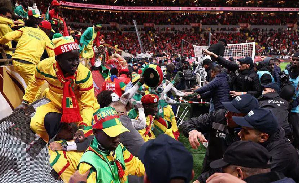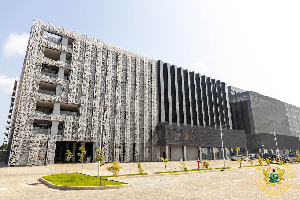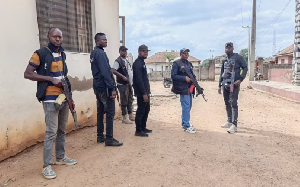Ghanaian children on Tuesday appealed to leaders of political parties to make this year's elections peaceful. They also want the elections to be free and fair and not to be used by any group to stir up hatred, violence or trouble.
The children again urged political leaders to use polite language during their campaign programmes at a ceremony organised by the UN to remind the parties on the need to protect the interest of children when they are in power.
The programme, supported by the World Bank, UNICEF, Child Right International and the Concerned Parents and Teachers Association (CPTA) of Ghana, was attended by students' representatives from first and second cycle institutions, street children, children with disabilities and those in difficult circumstances.
Children from different backgrounds who made the appeal concluded: "We want peace to continue to reign in our country. We do not want Ghana to join our neighbours in West Africa where children are suffering from the cruelty and horrors of war fought by adults".
Copies of the Conventions on the Rights of the Child and the appeal were presented to representatives of the New Patriotic Party (NPP), National Reform Party (NRP) and the ruling National Democratic Congress (NDC) to serve as a reminder as Ghanaians prepare to go to the polls.
The other political parties - United Ghana Movement, People's National Convention, Great Consolidated Popular Party and the Convention People's Party - were absent. The children called on political leaders to make their needs a priority when it comes to planning and implementing policies.
"On issues that affect us, we want to be given a voice." Mr. Gerald Annan Forson, a Patron of the CPTA, said. He cited a number of cases where children have been abused for crimes they did not commit and called for stiffer punishment for child abusers.
He urged children who are privileged, to support their less-privileged counterparts in all aspects of life to enable them to lead a meaningful life.
General News of Wednesday, 8 November 2000
Source: GNA












